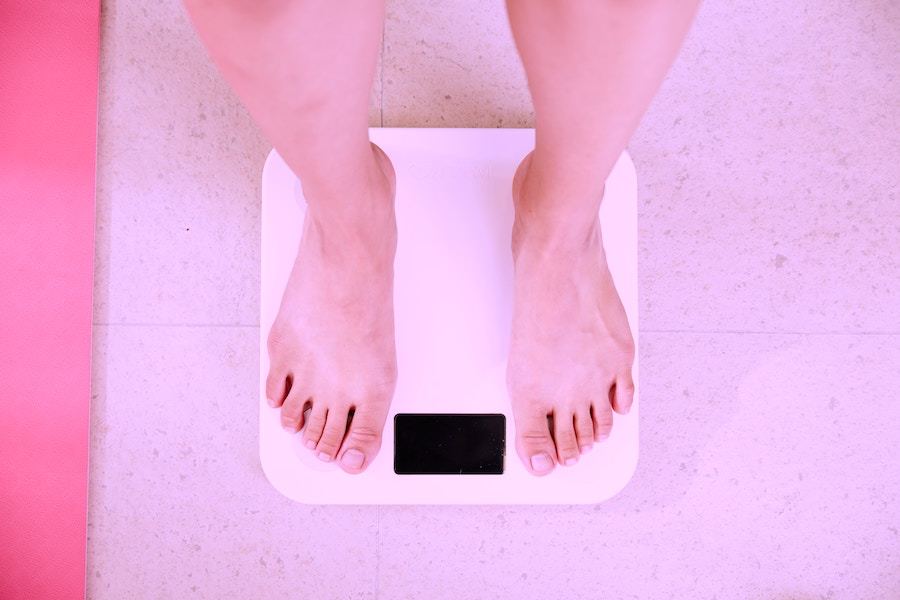Can Hirsutism Lead to Weight Gain?

What Exactly is Hirsutism?
Before we get started with the core topic of weight gain and Hirsutism, we wanted to provide you with a clear explanation of what the Hirsutism is all about. Firstly, it is something that can affect people of all ethnicities, and while it is most typically found in women, it is also known to impact the lives of men as well.
Hirsutism is a physical condition which can significantly impact a person’s self-esteem and confidence. It is a known medical condition that presents as excessive hair growth in places such as the face, chest, back, abdomen, lower back, thighs, and buttocks.
Some of the side-effects of Hirsutism can also include weight gain, acne, a deepening of the voice, oily skin or the stopping or irregularity of periods.
What Causes Hirsutism?
The most likely cause of Hirsutism is brought about by having increased levels of androgens in a person’s body. This can happen because of a number of reasons, such as a medical condition like Polycystic Ovary Syndrome (PCOS) or Cushing’s Syndrome, it can be because of certain medications, or if it’s a trait in your family (genetics). In some cases, there is no cause that can be found, so it’s called “idiopathic hirsutism”.
In any case, it’s very important to see a doctor about your excess hair growth, as they can identify the underlying cause: PCOS aside, there are other causes of Hirsutism, and while these are less common, they can also occur:
- Obesity – In some cases, trying to lose weight might help with the signs and symptoms of Hirsutism.
- Acromegaly – This is a very specific condition where a person’s body produces elevated amounts of the growth hormone.
- Medication – There are different types of medications that can cause this condition. Some examples of medications that have been known in the past to cause Hirsutism are different types of anabolic steroids.
- Cushing’s Syndrome – While exceptionally rare, this hormonal disorder can cause Hirsutism, bloating around the neck and face, and weight gain.
- Tumors – Either a growth or a tumor that specifically elevate the production of androgens. These types of tumors with typically impact the adrenal glands or the ovaries.
- Congenital Adrenal Hyperplasia – This is a known condition that is typically inherited and impacts the adrenal glands along with the glands above the kidneys, both are known to produce hormones.
As you can see, it’s very important to find out the underlying cause of your Hirsutism. This is why it’s crucial that you discuss it with your doctor. They can help you to find a treatment option that works for you.
Weight Gain and Hirsutism
But how is Hirsutism connected to weight gain? In many of the cases, Hirsutism is connected to Polycystic Ovary Syndrome (PCOS). PCOS is a chronic hormonal condition that not only affects your hormonal balance, but also your metabolism, and in many cases, your weight. Weight gain is one of the symptoms of PCOS, and having PCOS can make it much harder to lose weight. This is because many women with PCOS have insulin resistance, also called pre-diabetes, which disrupts the insulin resistance in a person’s body. This also increases your risk to develop type 2 diabetes.
If you experience the combination of hirsutism, weight gain and irregular periods, this could be an indicator for PCOS, and you should check in with a medical professional about your symptoms. They can then suggest next steps and treatment options for you.
Treatments for Hirsutism
If you or a loved one is suffering from excess hair growth and it is suspected as Hirsutism, there are many routes that can be taken in order to tackle the problem. As discussed above, it’s crucial to see a doctor and find the underlying cause of your hirsutism. They can then also discuss the possible treatment options with you, which include:
At Home Treatments for Hirsutism
These include performing regular hair removal techniques, such as waxing, bleaching, shaving, tweezing, and using various depilatory creams. The process is time intensive, and it will need to be carried out on a regular basis, but the cost is low, and it can be done from the comfort of your own home.
Professionals Hair Removal Treatments
These include methods such as IPL, Laser Hair Removal Therapy, and Electrolysis. Each of these treatments will need to be carried out by a qualified professional in a sterile environment, using specialist equipment. The results are long-lasting, and in many cases, the hair will eventually be destroyed and not grow back at all. The many caveats to these treatment options for Hirsutism are that they are costly, and there will be a course of treatments needed in order for the process to be effective.
Medications for Hirsutism
If you are experiencing problems with weight gain and Hirsutism, your doctor might also prescribe you medication such as the contraceptive pill or anti-androgens. They will discuss the treatment options with you after your diagnosis.
Conclusion
As you can see, it is important to talk about your symptoms with your doctor, as they will be able to find out more about the underlying cause of your Hirsutism and weight gain, and suggest treatment options to you.
Also, it goes without saying that a healthy diet and an active lifestyle will always help in situations where your weight is an issue. However, especially with PCOS, it can exacerbate the weight gain, and lifestyle changes alone might not resolve matters in their entirety.
